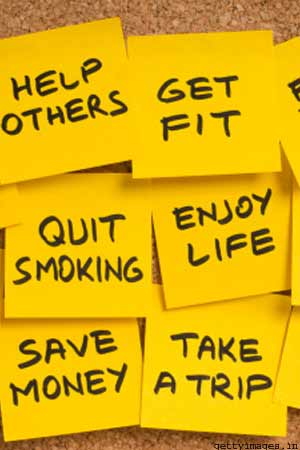Have You Lost Touch With Your Hunger Signals
Every human being is born with the ability to eat only when hungry and stop eating when satisfied. After all every baby and toddler will show you exactly when they've had enough.
But somehow along the way you may have lost that ability. Maybe years of being told to "clean your plate" have conditioned you to do just that no matter how much food is on it. Or maybe you've just got used to huge portions of food and have stopped listening to your body's signals.
Whatever the reason, the "knowing when to stop" skill is one that you need to redevelop if you want to lose weight and keep it off permanently.
So how can you learn to listen to those signals again?
1. Eat slowly
If you shovel in food like it's going out of fashion you'll be well past the point of being satisfied before you notice you've had enough. Pause before each bite and think about whether you've really had enough.
2. Eat more often
If you are absolutely ravenous when you sit down to eat chances are that you will eat too much. Little and often will acclimatise your stomach to smaller amounts of food.
3. Serve smaller portions
If something is on your plate, chances are you will eat it whether or not you need it. So serve less to start with. Having to go and get another portion gives you the chance to stop and think about whether you really need more. As a guide serve no more than two fistfuls of food as a main meal plus maybe some extra salad or vegetables. You really don't need more than that if you're eating regularly.
4. Leave extra food off the table
Don't make it too easy to fill up your plate with second helpings.
5. Single-portion snacks
Never eat from the bag. Always serve yourself a portion on a plate and put the rest (far) away. Make every decision to eat more food a conscious decision.
6. Wear tighter clothing
Stretchy clothes are comfortable but a nice snug fitting waistband is a good reminder to go easy on the amount you're eating.
7. Eat at home
Avoid eating out where you have little control over portion sizes. If you have no choice, choose the smallest portion of food. For example you can order the kid's meal at a hamburger place or order a starter portion as a main course in a restaurant.
8. Make it satisfying
If you still feel hungry even though you are physically full it may be that the meal was lacking in something you were looking for. Was there a balance of carbohydrate, protein and healthy fat? Was it packed full of vitamins and minerals? Did you serve the kind of food you wanted (sweet, crunchy, creamy or whatever)? Food needs to be balanced and worthwhile to be truly satisfying.
9. Eat when you're hungry
Don't feel you have to eat just because it's time for lunch or dinner. Wait until you are ready for food. Every diet book advises you to eat breakfast but if you're not hungry you can wait. The trick there however is to take your healthy breakfast to wherever you're going rather than to start devouring cakes and cookies once you get hungry later on.
10. Follow your own signals
So much of our eating is triggered by the food we see or smell or get offered by others. Start becoming aware of how much this affects you. Once you recognise that you are choosing to eat solely in response to an ad or an offer of food it will be easier to say "No, I'm not hungry, thanks".
Copyright 2005, Janice Elizabeth Small
-
Understanding Teeth Whitening Because It Is Not Magic!
With teeth whitening essentially a process is achieved and the results
-
Work It Out!
Pumping iron. Welcoming your friends to the gun show. We all want the
-
The Risk Of Having Too Much Belly Fat
Do you realize that a good many folks no
-
How To Eat Healthfully At 10 Kinds Of Restaurants
My entrée certainly sounded innocuous, yet it arrived egg-batter
-
How To Stop Gaining Happy Pounds When Youre In Love
When I had fallen in love in the past, a few months would pass a
-
Weight Loss Clinic Virginia: Diet Remains Key In Weight Loss Battle
There is no getting around the hard truth that diet plays the most es
- DON'T MISS
- Lose Weight at Home with These 3 Simple Steps
- 5 No-Fail Ways To Lose Weight While You Sleep
- How to Lose Weight with Virgin Coconut Oil
- Medifast Diet Review: Making The Medifast Diet Work For You
- Yoga Exercises For Weight Loss: The Best Way To Healthy & Fit Life
- Lose Weight by Eating THIS Food
- Diets Why Drastic Does Not Work
- Skinny Fat – Being Thin Does Not Always Mean You’re Lean
- The Proper Exercises to Eliminate Your Muffin Tops
- Weight Loss Exercise To Lose Weight Naturally




